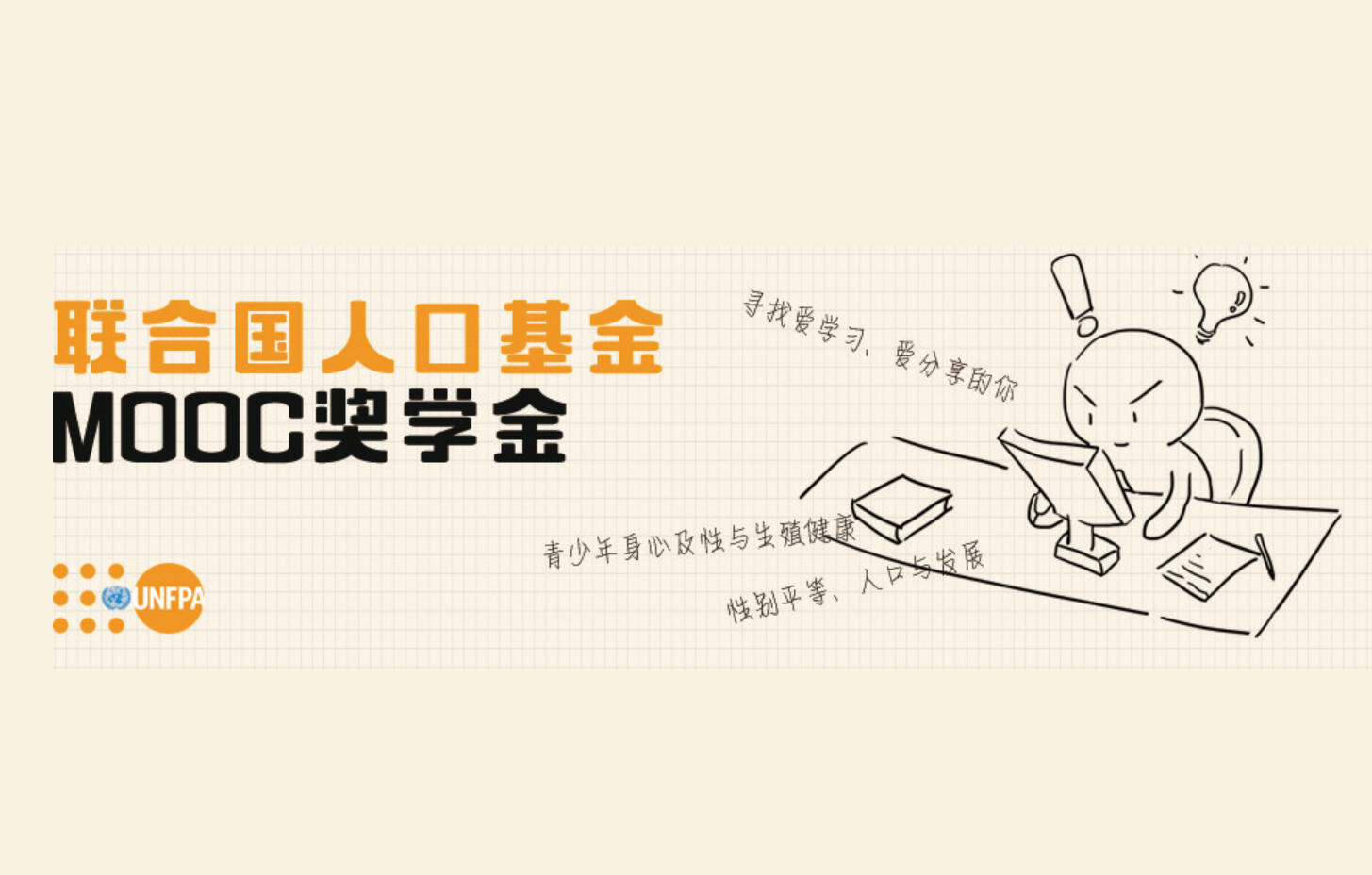March 16, Beijing---Following the successful initiation of the UNFPA MOOC Scholarship on the World Population Day 2014, the United Nations Population Fund (UNFPA) China Office launched the second round together with its partner Guokr.com.
As Massive Online Open Courses (known as MOOC) become increasingly recognized as a platform to promote equity in education internationally, UNFPA decided to capitalize on the advantages of popular MOOCs to promote cutting-edge knowledge in the areas of population and development, health including sexual and reproductive health, and gender equality. Furthermore, the UNFPA MOOC Scholarship encourages the learners to retransmit their learning to other young people through various creative expressions of the issues that concerns them based on the MOOC learning.
The passion of the participants, and their innovative approaches have made UNFPA MOOC Scholarship very appealing among the MOOC learners. On the most influential Chinese social platform, with support from UNFPA and Guokr.com, the nine winners of the first round scholarship were able to attract 320 million hits by Chinese young people on the #UNFPA MOOC Scholarship topic. The Scholarship has generated a wide range of products, including sets of cartoons on health issues of girls, videos on gender, series of talks on LGBT issues and toolkits on learning based on mobile phones and computers.
The theme of the second round of the Scholarship will focus on Youth Lens on Sexual and Reproductive Health. Building on the success of the first round, UNFPA and Guokr.com will guide the candidates to focus their reflections on sexual and reproductive health issues, a key area affecting young people’s rights and well-being. In addition to the courses focusing on sexual and reproductive health and youth psychology, this round of Scholarship will offer opportunities for the MOOC learners interested in photography, new media, big data, and civil engagement to express their views creatively on sexual and reproductive health issues through the inspirations and skills they will obtain from relevant MOOCs.
"The 1.8 billion young people should be at the center of the world’s new sustainable development agenda. They can be part of the solution and transform the future by acting as the agents of positive and sustainable change,” said Mr. Arie Hoekman, UNFPA China Representative. With support from Guokr.com, one of the most popular and trusted youth website in China, the UNFPA MOOC Scholarship hopes to again enable young people to bring their innovative power to the fore by reflecting on the priority issues affecting them and thereby telling their stories and inspire other young people.
Several UNFPA MOOC scholars from the first round conveyed their congratulations to the launch of the second round. While recognized as contributors to promote youth participation in development, they themselves acknowledged the huge benefits they gained from their involvement with the UNFPA MOOC Scholarship.
Beth, the scholar of the LGBT Free Talks project, proudly announced that her experience with the LGBT Free Talks has been her greatest achievement in life so far. "The project has helped me to make the most important breakthroughs for myself by sharing my views on LGBT issues with so many others. I am more confident now with what I want to do for the LGBT communities in the future,” said Beth who has plans to write up a book based on the LGBT Free Talk project.
The scholar Huanzai created sets of “I Do Know Though I Am Not Married” infographics on young people’s attitudes on sex based on a series of interviews. Huanzai wrote in the project summary: “I hope to help people to realize that irrespective of our ages, it’s not a bad thing to learn about sex. It only helps us to protect us better.” Huanzai made a strong statement on the need to have better sexuality education in China after finding out that most of the young people had to turn to the internet when they could not receive adequate and appropriate information from their parents and teachers, and some girls even chose to keep silent when sexually harassed.
More infomation: http://zone.guokr.com/area/scholarship_UNFPA/



